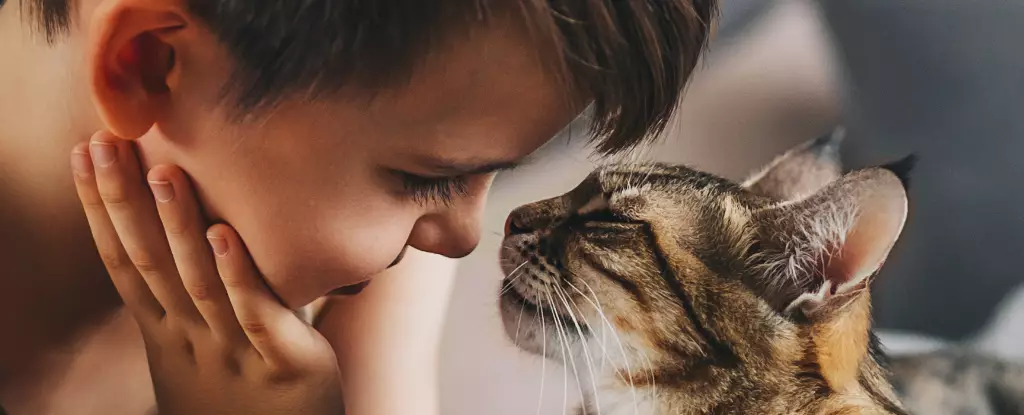Cats have found their way into human households for millennia, offering companionship and amusement long before they became internet stars. Their unique behaviors, comforting purrs, and playful antics contribute to a rich, sometimes complex relationship with humans. As we dive deeper into the multifaceted bond between cats and their owners, it becomes essential to evaluate both the benefits and potential downsides of having a feline friend.
The notion that cats are mere pets owned by humans is fundamentally flawed. Instead, studies reveal that cat owners often regard their feline companions as family members. For instance, a Dutch study involving 1,800 cat owners illustrated that half considered their cats part of the family, while a significant number viewed them as children or best friends. This emotional connection is essential, as it transcends ownership and fosters deep, affectionate relationships.
The dynamics of human-cat interactions suggest that felines may prefer human companionship over material offerings like food and toys. Evidence indicates that cats can discern when humans speak to them versus to others, and they often respond positively when humans use gentle gestures, like slow blinking. This subtle interaction emphasizes a unique aspect of cat behavior that highlights their social intelligence and the bond they share with humans.
Research has consistently shown that owning a pet, particularly a cat, can lead to a reduction in feelings of loneliness and social isolation. Engaging in caregiving roles for cats can provide owners with a sense of purpose and enjoyment, further enriching their emotional lives. However, the nature of the relationship plays a critical role in determining its psychological benefits. A study categorized attachment styles as remote, casual, and co-dependent, revealing that those with a more co-dependent or friendly relationship enjoyed a more profound emotional connection to their cat.
In terms of physical health, multiple studies have indicated that cat owners may have a lower risk of cardiovascular diseases, such as heart attacks and strokes. However, it is crucial to approach these findings with caution. Correlation does not imply causation; while cat ownership is associated with lower disease risk, it does not prove that cats are the direct cause of these health benefits.
Moreover, the interplay between cat ownership and gut microbiota composition has yielded promising insights, particularly among women. Studies suggest enhanced gut health, improved blood sugar regulation, and reduced inflammation associated with feline companionship, possibly linked to the way cats influence their owners’ lifestyles.
Qualitative research offers a unique perspective on the emotional nuances of cat ownership. Interviews with individuals, particularly veterans, shed light on how deeply intertwined these relationships can be with mental health. For instance, veterans reported their cats as vital sources of comfort in managing anxiety and depression, indicating that these pets often play an essential role in their daily lives. Conversely, findings showed that a strong attachment to pets could correlate with more profound mental health challenges, suggesting a complex dynamic where reliance on pets is both a coping mechanism and a potential source of stress.
Caregiver responsibilities can also present challenges. For instance, when a cat suffers from health issues, the accompanying stress can weigh heavily on the owner’s mental well-being. An alarming percentage of cat owners with pets suffering from chronic conditions reported significant caregiver burden, indicating that the emotional investment in a pet can come with its own set of trials.
Despite the myriad benefits of cat ownership, some inherent risks must be acknowledged. Cats can act as hosts for zoonotic diseases, such as toxoplasmosis, primarily transmitted through their feces. While many infections lead to mild flu-like symptoms, vulnerable populations, such as pregnant women and immunocompromised individuals, may face severe health consequences.
Additionally, allergies to cats are on the rise, with an estimated one in five individuals experiencing sensitivity to cat saliva and dander. Although this might deter potential owners, it’s worth noting that exposure to cats has also been associated with a protective effect against developing asthma and allergies in some cases. The immune system may adapt in such a way that mitigates future allergic reactions, presenting a paradox in the overall effects of cat exposure.
The relationship between humans and cats is rich and complex. While they offer significant emotional support and associated health benefits, potential risks and challenges, such as health burdens and allergies, must not be overlooked. Ultimately, understanding and navigating these dynamics can help enhance the enriching experience of sharing one’s life with a cat, fostering a bond that is both rewarding and meaningful. As our understanding deepens, we can appreciate the profound impact these furry companions have on our lives, balancing the joys they bring with the responsibilities they entail.


Leave a Reply